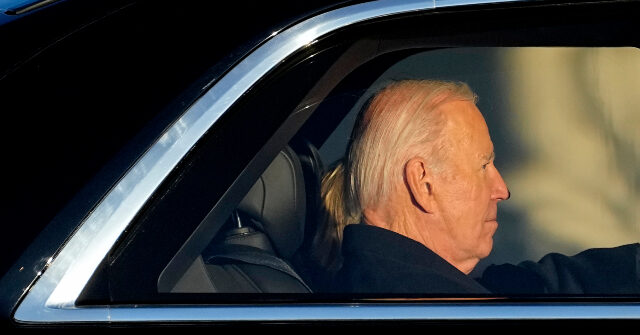President Joe Biden’s potential retirement from public life has become a contentious topic, highlighted in a recent New York Times report. Following his ousting as the Democratic presidential candidate in July, Biden, now 82 and a veteran of over five decades in politics, is grappling with his dimming prospects. The report by Peter Baker and Zolan Kanno-Youngs suggests Biden is not ready to conclude his long and impactful career, despite indications that he is exhibiting signs of emotional distress. Friends and allies have described him as feeling bored, moody, and even angry after his exclusion from the presidential race. His anger reportedly stems, in part, from backlash over his decision to pardon his son, which may have compounded his feelings of rejection and isolation.
Despite assumptions that Biden would be eager to retire after decades in the public eye, he appears reluctant to leave the political stage. Reports of his health have emerged, suggesting potential physical challenges he faces as he moves forward in his final days in office. The Times article titled “A Weary Biden Heads for the Exit” offers a candid portrayal of Biden’s current state. During a public event, he was observed struggling with physical mobility, which drew concern from onlookers who feared he might trip. While aides claimed his gait was typical, the incident highlighted the worries surrounding the president’s health and vitality in his twilight years in politics.
Additionally, Biden’s visit to the National Museum of Slavery showcases the preparations made to accommodate his physical limitations, as he was reportedly shown artifacts outside rather than navigating the building’s steep stairs. This incident raised questions about the degree to which his health and age may be impacting his ability to fulfill the demands of the presidency. While the White House asserts that logistical issues dictated the plan, the narrative surrounding his physical capabilities continues to intensify as he approaches the end of his career. Observers traveling with Biden noted his reduced activity levels and occasional moments of mumbling, which further fueled speculation regarding his cognitive and physical well-being.
As his presidency nears its conclusion, Biden has been characterized as reflective, often reminiscing about significant events from his political past, such as the 1960 debate between John F. Kennedy and Richard Nixon. This introspective behavior underscores the reality of his career’s impending end, suggesting a mix of nostalgia and confrontation with the reality of his legacy. Speculations surrounding Biden’s mental acuity are not new, with assessments from figures like Special Counsel David Hur describing him as an elderly man with memory concerns. Such evaluations have largely gone unnoticed in mainstream media, although they raise critical discussions regarding the capabilities of aging leaders in positions of power.
The culmination of these incidents paints a complex picture of Biden as he navigates the challenges of the latter part of his political career. The combination of health concerns, emotional struggles due to rejection, and a lingering sense of duty to finish his time as president complicate his potential retirement. Rather than embracing a typical post-presidency life, Biden seems to be grappling with the transition away from a role that has occupied much of his identity for over five decades. The convergence of these factors suggests that Biden’s journey toward retirement is far from straightforward.
In summary, President Biden’s current state reflects a mix of reluctance, emotional distress, and physical limitations as he edges toward the conclusion of his prolific political life. The New York Times report sheds light on the struggles he faces, grappling not only with the prospect of stepping away but also with the reality of his age and health while remaining in the public eye. Ultimately, this chapter of his life serves as a poignant reminder of the personal and professional challenges inherent in the transition away from a decades-long career in public service. As he contemplates his legacy and life beyond the presidency, Biden’s experience mirrors the complexity of aging leaders facing the twilight of their political influence.

